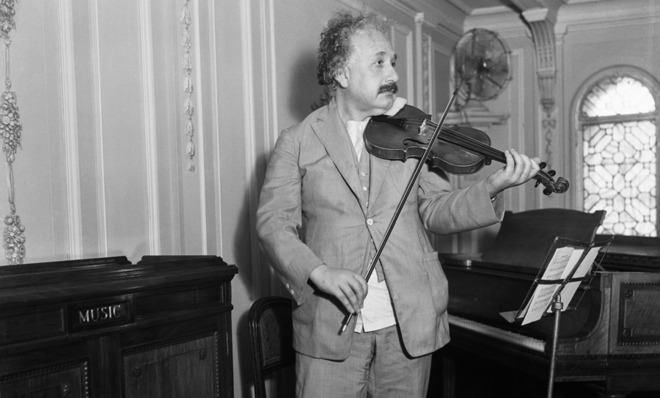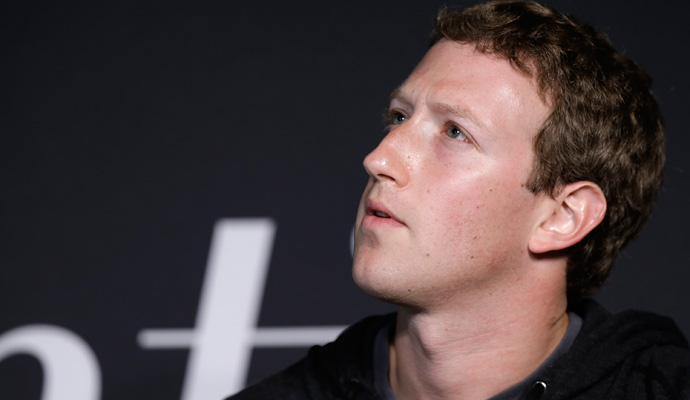Where are all the Renaissance men?
We're looking at you, Silicon Valley

A free daily email with the biggest news stories of the day – and the best features from TheWeek.com
You are now subscribed
Your newsletter sign-up was successful

A recent study suggests, quite strongly, that people in technology fare better when they have creative hobbies (instruments, arts and crafts, and so on). The study was conducted in the US and looked at STEM (science, technology, engineering, and mathematics) graduates and the hobbies they had in high school.
Those with creative hobbies tended to achieve more: Patent more technologies, build more hardware, start their own businesses. The researchers suggested that this might have been due to creative mental skills, hand-eye coordination, communication skills, or maybe just being able to be more creative in some general way.
There's always been a perceived schism between "scientists" and "artists" — which is weird. Gauguin founded a political journal. Einstein played the violin. Darwin was a Cambridge theologian before he was an evolutionary biologist.
The Week
Escape your echo chamber. Get the facts behind the news, plus analysis from multiple perspectives.

Sign up for The Week's Free Newsletters
From our morning news briefing to a weekly Good News Newsletter, get the best of The Week delivered directly to your inbox.
From our morning news briefing to a weekly Good News Newsletter, get the best of The Week delivered directly to your inbox.
But that was a different era. My grandfather, Dennis Flanagan, also a journalist, said the greatest compliment he ever received was when, after criticising a film critic for having no scientific knowledge, she told him: "Oh, you're just a renaissance hack!" He wanted it on his tombstone, but they weren't in style then.
This new study is the hard evidence needed to fight against common sense, which dictates that to be a good techie or founder your life needs to be filled to the brim with ones, zeroes, and business plans. This article written by a disgruntled start-up employee describes the weird cult that surrounds tech employment. It tells us that long hours, something called "lean" and, of course, beer and ping-pong are the keys to success. Without telling us why.
In my piece about the life of Nintendo founder Hiroshi Yamauchi I observed that making good video games doesn't come from being a video-game addict with high-iterative tendencies. It comes from having empathy with the user. Recall the well-trodden story of Steve Jobs' lessons in calligraphy, which led to Mac's winning typography.
How did we forget what we already knew? Why did Renaissance men feel able to indulge in off-topic hobbies that round off our core skills, but we don't? Perhaps in these years of the quantified self, if it isn't backed by science or quoted atop a noir-gif of Mark Zuckerberg then it doesn't make sense to us.
A free daily email with the biggest news stories of the day – and the best features from TheWeek.com

It might be that creative hobbies are seen as eccentricities of genius rather than as helpful to it. If you disagree with this way of doing things then you can look naive, lazy, or — worse — disinterested.
It's not disinterested. In fact, it's the opposite: It's being overly interested in everything. The researchers in this study suggested that creative hobbies might increase our ability for thinking horizontally, and solving problems from a different angle. But they also help us see beyond the tech world, which is a tiny part of the bigger picture.
Creative thinking helps us see the wood having seen the trees. Plus, it seems a little wasteful to only ever try one type of thing, and for every thing else to be a novelty or a treat.
To be fair, this is a strength of Silicon Valley. While some might espouse the Renaissance ideal as a marketing gimmick, at least it's better than not doing it at all. And then there are those that are very genuine in keeping their thumbs in pies of sport and the liberal arts. More power to them. There might be something of the Valley's success in that.
It seems we can file this piece of advice with other modern ideas that were shown to be unhelpful: Such as overworking, or specialising too early in your career. It's weird when we look at history: With Leonardo da Vinci as one of history's greatest, and most productive, polymaths — and all our idealised Greek ancestors as philosophers, biologists, "atomists", artists, and hedonists — that we've dropped all those habits in favour of robotic specialism and narrow-mindedness.
There's a larger message to this research which is outside the scope of this article, but which is, essentially: Don't waste your life on stupid advice from people who've never done it themselves. Enjoy some Dvorak with your data, indulge in gourmet espresso during the morning emails and, instead of ping-pong, play a real sport, for God's sake.
More from The Kernel...
-
 Bad Bunny’s Super Bowl: A win for unity
Bad Bunny’s Super Bowl: A win for unityFeature The global superstar's halftime show was a celebration for everyone to enjoy
-
 Book reviews: ‘Bonfire of the Murdochs’ and ‘The Typewriter and the Guillotine’
Book reviews: ‘Bonfire of the Murdochs’ and ‘The Typewriter and the Guillotine’Feature New insights into the Murdoch family’s turmoil and a renowned journalist’s time in pre-World War II Paris
-
 Witkoff and Kushner tackle Ukraine, Iran in Geneva
Witkoff and Kushner tackle Ukraine, Iran in GenevaSpeed Read Steve Witkoff and Jared Kushner held negotiations aimed at securing a nuclear deal with Iran and an end to Russia’s war in Ukraine